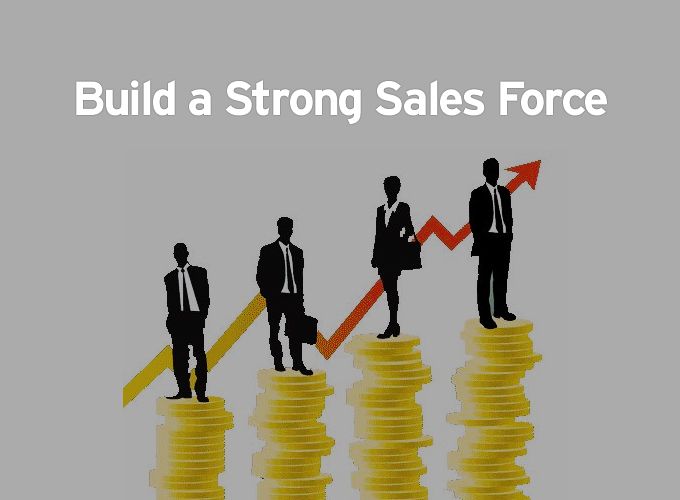How does a company find a good rep? They need to talk to their customers for recommendations. The customer will always recommend someone, with which s/he already has a good relationship. If there is a rep association in the same industry, contact the association.
Len Calderone for | RoboticsTomorrow
For any business to succeed, it must have a strong sales force. The company's product or service could be the greatest, but if the company can't sell what it is promoting, it will fail. For manufactures, there are two directions that it can go to develop a competent sales force. It can hire direct salespeople or contract with independent reps. A local dealer will need to hire a direct salesperson if the company has grown to the point that the owner no longer can handle the volume.
If there are no sales, there is no business income, employees don't get paid and a company will go out of business. Therefore, sales performance is the most important function of any company. So, what should any employer look for in a salesperson? The first mistake any company can make is to believe that a good salesperson can sell anything. A sale is a sale—right? So, all a company has to do is find a good salesperson. This is totally wrong. A really great salesperson has to be well-adapted to the environment in which they are selling.
A company has to find special people with identifiable skills, rather than a person who can just sell. The company must try to find sales people, who have been successful in firms similar to their own, but not seek these people from competitors. A salesperson, who has been selling for a competitor, has pitched his products or services as the best. Should this person be hired, the salesperson will now be saying the same about the new company's products or services, leading the company's customers to question if the salesperson was lying before or now. The salesperson loses all credibility.
It is important that the right kind of person be hired. If the company is large, then the person must have the ability to work within office politics to get the support that a customer requires. Whereas, a salesperson, who works for a smaller company, will be required to do almost everything without a large support staff.
A salesperson must be able to get customers to like him or her. If a salesperson isn't likable, no amount of product knowledge will help. This person must be respectfully persistent and have the capability to think quickly on his/her feet; and needs to do continuous preparation, while researching information, contacts and leads. Along with this, a winning salesperson must never forego opportunities, while following-up constantly.
Without enthusiasm and a solid work ethic, no amount of training or high pay will make a person successful at selling. Too many salespeople talk themselves out of a sale. A truly good salesperson must be a listener. This can be discovered during most interviews. Only by listening can a salesperson relate to the customer and support them in choosing the right solutions for their business. Personal empathy is an essential quality, as it relates to the customer and it shows genuine care for a customer's needs.
Now that we have discussed some of the important traits to look for in a salesperson, let's talk about the kind of sales force that you should utilize. A large company, selling nationwide can hire a direct sales team, or contract out to manufacturers' reps. The most important consideration is which approach will benefit the company the most.
Although this discussion primarily addresses the coverage of the United States, the same concept can be applied elsewhere. To properly cover the U.S., a company would have to hire 12 -15 salespeople. The advantage of a direct sales force is the control a company has over how the salesperson's territory is covered. The salesperson can be instructed where to go and who to see. Their entire work day is controlled by a sales manager. Most importantly, that salesperson will only be selling the products or services of the company they work for.
A direct sale force can be advantageous if the company has a large volume of sales. But, if the company is a small business, a permanent sales force might be a disadvantage. If a company is setting up a new sales force or just replacing a single salesperson, time might be an issue. The hiring process alone might take from six to eight weeks. Then comes the factory training. Once the salesperson gets into the field, it may take another several months for the employee to get familiar with the territory and the company's customers.
Once the salesperson is in the field, the costs for a direct salesperson becomes obvious —compensation, bonuses, travel, entertainment, meals, lodging and car expenses. Multiply this by the number of people in the field and the sales budget skyrockets. Take a salary of $50,000 and add approximately $20,000 for benefits and a company is paying $70,000 plus expenses. A higher base and lower commission is the norm for most salespeople, who are developing a customer's base.
A company must evaluate if this cost is justified by the return. In many smaller companies their budgets just can't justify this burden. This is especially true when the economy takes a downturn. A company can make reductions in the workforce, but it cannot cut the sales force without seriously affecting the company's image and future earnings.
So, what's the alternative? Maybe a company should look to independent manufacturer's representatives (reps). Since reps are paid a fixed commission based on what is shipped, the company knows what its costs are going to be no matter what the economy brings. Not only that, but a rep is not paid until the customer pays the company, whereas, a direct salesperson is paid in advance of shipments and collections.
A rep pays all of his/her expenses, including taxes (company pays on 1099). The company just writes one check for the commission, which averages from 5 - 15%, depending on competitive pricing and production costs. If the product is high ticket and sold directly to the customer a higher commission is in order, and if the product is sold through mass distribution, a lower commission is normal.
The cost of training a direct salesperson would go away, as the rep is already calling on the company's customers, selling associated, but not competitive, products or services. The rep has a relationship. The rep also knows the product or service as the rep is already in that industry, and can give a company immediate access to the market. Another plus is that a rep won't leave and go to another company for higher pay.
How does a company find a good rep? They need to talk to their customers for recommendations. The customer will always recommend someone, with which s/he already has a good relationship. If there is a rep association in the same industry, contact the association.
A company must also have a rep agreement establishing the territory (which should be exclusive), the commission, company secrets, samples, brochures, etc. If a product or service is sold in one territory and shipped or used in another, the commission should be split. Never keep a house account. Nothing turns a rep off more than a company that keeps the best accounts to themselves. The rep just cannot make a living on the leftovers.
A rep should be treated as a part of the company. After all the rep is a very important part. Just remember that a rep cannot be bossed around like an employee. S/he is independent.
Whichever way a company decides to go, it should evaluate cost to sales benefit, as well as the experience and capability of the person selected. After all, sales are the most important part of any company, and the time and effort should be allotted to establish the best.
For additional information:
- http://www.howtofindsalesreps.com/
- http://salesmanage.com/blog/archives/7_secrets_of_recruiting_the_best_salespeople
The content & opinions in this article are the author’s and do not necessarily represent the views of RoboticsTomorrow
Comments (0)
This post does not have any comments. Be the first to leave a comment below.
Featured Product


